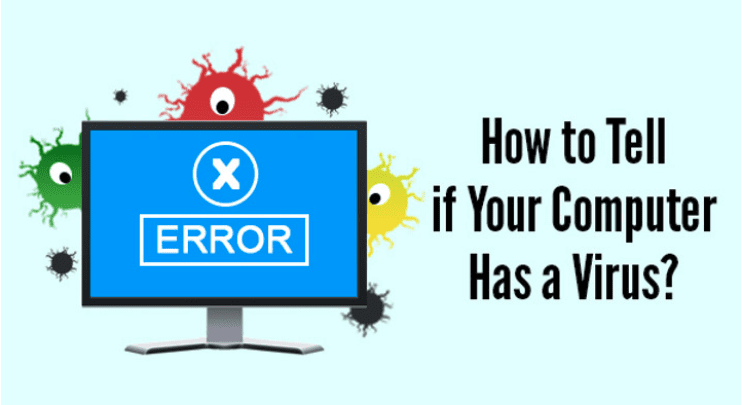Sometimes computers do wacky things that ring alarm bells and make us dive for cover. Next thing you know, you're running scan on repeat and demanding everyone to come clean about their browsing habits. Fortunately, not all weird occurrences are caused by viruses - sometimes your computer is simply overloaded, overheating or in desperate need of a reboot.

Here are the tell-tale signs of a malware attack:
- Bizarre error messages - Messages popping up from nowhere that makes no sense, are poorly worded or plain gibberish - especially if they're about a program you don't even have. Take note of antivirus warnings to make sure the warning is from YOUR antivirus protection and looks like it should. It a message pops up that isn't quite right, don't click. Not even to clear or cancel the message. Close the browser or shut down the computer instead, then run a full scan.
- Suddenly deactivated antivirus /malware protection - You know the best way to get past the guard? Send him for a coffee break! Certain viruses are programmed to take out the security systems first, leaving you open to infection. If you reboot and your protections aren't back on the job, you are more than likely under attack. Attempt to start the antivirus manually and you'll know for sure.
- Social media messages you didn't send - Are your friends replying to messages you never wrote? You login credentials might have been hacked and your friends are not being tricked into giving up personal information or money. Change your password immediately, and advise your friends of the hack.
- Web browser acting up - Perhaps you've noticed your homepage has changed, it's using a n odd search engine or opening/redirecting to unwanted sites. If your browser has gone rogue, it's definitely a virus, usually one intended to stead your personal or financial details. Skip the online banking and email until your scans come up clear and everything is working normally again.
- Sluggish performance - If your computer speed has dropped, boot up takes an eternity and even moving the mouse has become a chore, it's a sign that something is wrong. But not necessarily a virus. Run your antivirus scan and if that resolves it, great. If not, your computer likely needs a tune-up or repair.
- Constant computer activity - You're off the computer but the hard drive is going nuts, the fans are whirring, and the network lights are flashing like a disco? It's almost like someone IS using the computer! Viruses and malware attacks use your computer resources, sometimes even more than you do. Take note of what's normal, and what's not.
Does your computer have a virus?
Contact us today and we will be happy to help.

